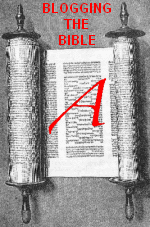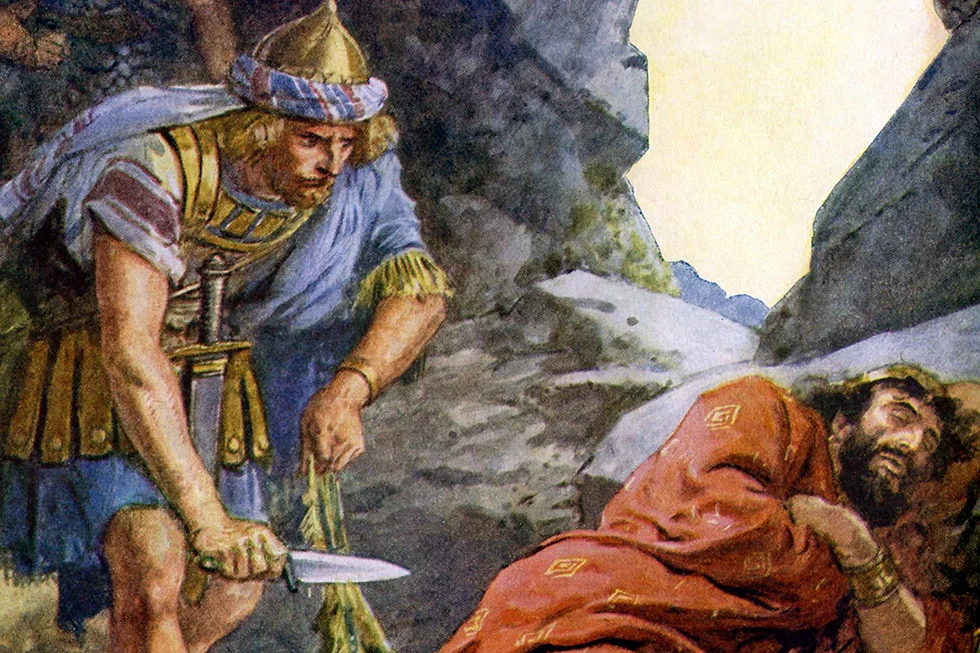 Quite a few things happen in these 2 chapters which I’ll breeze through. David hides from Saul in a cave system and Saul with his soldiers go in to pursue him. The first interesting point is that the text says Saul went to “cover his feet”. In the Hebrew Bible, the feet are usually a euphemism for something to do with male genitalia, in this case referring to Saul taking a leak. However it can take on other meanings, such as Ruth 3:4 when she is instructed on how to come onto Boaz. This type of reference would often be missed by modern readers who would think of Ruth as a particularly chaste story but we can see the verse in its full force: “When he lies down, note the place where he is lying. Then go and uncover his feet and lie down. He will tell you what to do.”
Quite a few things happen in these 2 chapters which I’ll breeze through. David hides from Saul in a cave system and Saul with his soldiers go in to pursue him. The first interesting point is that the text says Saul went to “cover his feet”. In the Hebrew Bible, the feet are usually a euphemism for something to do with male genitalia, in this case referring to Saul taking a leak. However it can take on other meanings, such as Ruth 3:4 when she is instructed on how to come onto Boaz. This type of reference would often be missed by modern readers who would think of Ruth as a particularly chaste story but we can see the verse in its full force: “When he lies down, note the place where he is lying. Then go and uncover his feet and lie down. He will tell you what to do.”
Saul then falls asleep near a rockpool. David comes upon his sleeping body and instead of killing him decides to sever his garment. He then speaks to him from across a stream showing the garment as proof that he doesn’t want to kill his king. We start to see the other mafiozzi aspect of David: his smooth-talking. David sycophantically appeases Saul, calling himself a dead dog — a bit of self deprecation that seems to work.
But the interesting thing in that story is this may be one of the first instances of recurring motifs in fiction. Earlier, when Samuel cursed Saul we have the famous scene where he starts to walk away from Saul who clutches at his garment and Samuel walks off leaving Saul with a torn piece of cloth. It was so famous I didn’t even mention it in my post about chapter 15 where it happens. But now there is more in the torn garments department. Even though it’s David who is left with the torn cloth, both times Saul is the one put to shame by the incident.

Chapter 25 begins with what’s possibly the most understated eulogy of a major character in the Bible: “And Samuel died; and all Israel gathered themselves together, and lamented him, and buried him in his house at Ramah.” For a character whose precocious childhood is described in such detail, I don’t see what dramatic point is meant to be made by such a quick goodbye. A thought did pop into my head that this might have been a way on commenting how Samuel was forgotten by everyone in his old age, but that’s probably reading too much into the text.
Despite this last idiosyncrasy, the storytelling remains effective. The next story deserves a separate post so stay tuned. But let’s just say that things come full circle in that once again we return to the illustrious “feet” euphemism.





0 Comments